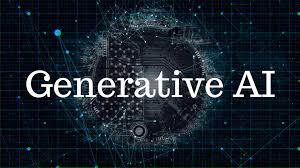- The AI Blockchain
- Model Context Protocol (MCP) vs Agent to Agent (A2A) Protocol
- Responsible AI
- Building a CI/CD Pipeline for Machine Learning Using AWS Services
- DeepSeek Architecture
- Machine Learning for Beginners. Your roadmap to success.
- The Machine Learning Algorithms List: Types and Use Cases
- Harnessing Machine Learning for Advanced A/V Analysis and Detection
- TensorFlow Lite vs PyTorch Mobile for On-Device Machine Learning
- Generative AI presents new opportunities for accelerating human achievement
- Unlocking the true potential of AI with UiPath business automation
- AI for good: Three principles to use AI at work responsibly
- Transforming healthcare document processing with AI
- Turn AI hype into business results: Top takeaways from UiPath AI Summit 2024
- Why context is the key to better generative AI
- Genai trained for document processing: Advancing business operations at scale
- The ultimate AI glossary: Artificial intelligence definitions to know

Responsible AI
AI is transforming industries, but with great power comes great responsibility. Responsible AI is not just a buzzword—it’s a necessity for ensuring fairness, transparency, and accountability in AI systems.
- Why does Responsible AI matter?
✅ Avoids bias & discrimination
✅ Ensures transparency & explainability
✅ Builds trust with users & stakeholders
✅ Protects privacy & data security
✅ Aligns AI with ethical & legal standards - How do we implement Responsible AI?
🔹 Fairness – Train models on diverse, unbiased datasets
🔹 Transparency – Make AI decisions explainable
🔹 Privacy-First – Secure user data with strong governance
🔹 Human Oversight – Keep AI aligned with human values
🔹 Continuous Monitoring – Ensure AI evolves responsibly
As AI adoption accelerates, we must ensure that AI serves humanity ethically and equitably. Let’s build AI that benefits everyone!
Ensuring Responsible AI requires a combination of technical, ethical, and governance mechanisms. Here are some key technologies and methods that can help achieve fairness, transparency, and accountability in AI systems:
1️⃣ Blockchain for Transparency & Trust
🔹 Immutable Records – Logs AI decisions, ensuring accountability.
🔹 Decentralized AI Auditing – Enables independent verification of AI decisions.
🔹 Smart Contracts – Automate AI compliance checks with ethical guidelines.
2️⃣ Cryptography for Privacy & Security
🔹 Homomorphic Encryption – Enables AI to analyze encrypted data without decryption.
🔹 Differential Privacy – Adds noise to datasets to prevent individual user identification.
🔹 Zero-Knowledge Proofs – Validates AI decisions without exposing sensitive data.
3️⃣ Explainable AI (XAI) for Transparency
🔹 SHAP & LIME – Explain black-box AI models.
🔹 Causal AI – Moves beyond correlations to understand cause-effect relationships.
🔹 Model Interpretability Frameworks – TensorFlow Explainable AI, IBM AI Explainability 360.
4️⃣ AI Ethics Governance & Auditing
🔹 AI Governance Frameworks – NIST AI RMF, EU AI Act, IEEE Ethics in AI.
🔹 Third-Party AI Audits – Independent review of AI fairness and bias.
🔹 Bias Mitigation Techniques – Fairness constraints, re-weighting models, adversarial debiasing.
5️⃣ Federated Learning for Data Privacy
🔹 Decentralized Training – AI learns from user devices without sending raw data to a central server.
🔹 Edge AI Security – Processes sensitive data locally, reducing privacy risks.
6️⃣ Responsible Data Sourcing & AI Ethics Training
🔹 Ethical Data Collection – Ensuring consent, fairness, and unbiased representation.
🔹 AI Ethics Education – Training developers & stakeholders on ethical AI practices.
7️⃣ Human-in-the-Loop AI for Responsible Decision-Making
🔹 Human Oversight – Critical for high-stakes AI applications (healthcare, finance, law enforcement).
🔹 AI-Augmented Decision Making – AI supports, but does not replace, human judgment.
🔹 Continuous Monitoring & Feedback Loops – Regular checks to prevent AI drift and bias accumulation.
#ResponsibleAI #EthicalAI #AIforGood #FairnessInAI #AIethics #ArtificialIntelligence

















